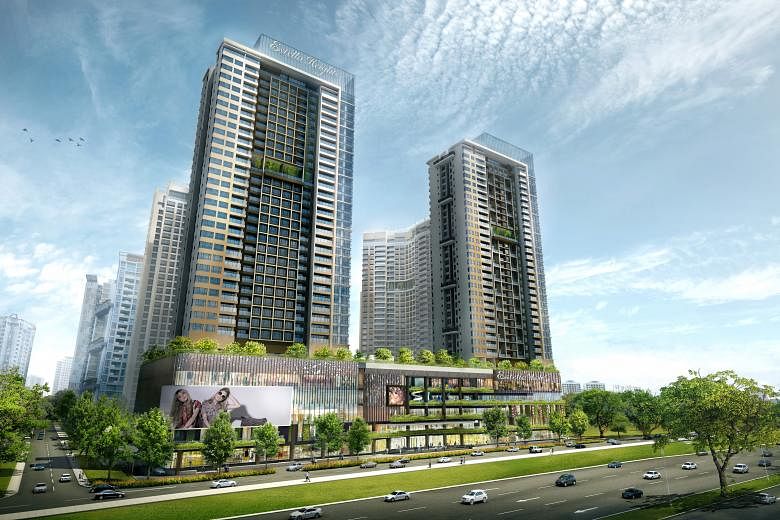Foreign buyers are starting to take greater interest in the Vietnamese property market after a slew of legislative changes has given them a freer hand there, CBRE says.
It also means Singapore developers - some veterans in the Vietnam market - will now be able to not just sell their units onshore in Vietnam, but also consider marketing them in Singapore as well.
For example, Keppel Land will be launching the second phase of its project, Estella Heights in Ho Chi Minh City, here in coming weeks.
From July 1, foreign individuals and enterprises are allowed to purchase and own residential property - for the former, if they have entry and exit immigration stamps, and for the latter, if they only use the homes for their own staff.
Previously, a foreigner had to have a work permit to buy property, and was restricted to one property to live in. A foreign buyer may also now buy to hold, occupy or lease out - and can also buy more than one unit.
"Certainly in the first few months, we are seeing a lot of interest from Koreans, Japanese, Singaporeans and Malaysians who live and work in Vietnam," Mr Marc Townsend, managing director of CBRE Vietnam, told The Straits Times .
However, foreign buyers can own only up to 30 per cent of units in a single condominium building - which guards against speculation, he added.
Gross yields are about 6 to 8 per cent while net yields are about 4.5 to 6.5 per cent, said Mr Townsend. There also tends to be a ready pool of tenants, especially near the international schools .
The mix of foreigners has also become more diverse: from teachers to bank executives, or those working in manufacturing or logistics, with younger people from neighbouring countries coming in.
In another rule change, the old 49 per cent ceiling for foreign ownership of public companies was largely scrapped. In certain sectors, companies can now be wholly owned by foreigners.
Singaporeans are likely to be interested in Vietnamese real estate due to its good value, said Mr Townsend. For example, units in the second phase of Estella Heights will be sold at prices from $2,450 per sq m ($228 psf) or $150,000 per unit.
Market conditions also bode well for Vietnamese real estate, he said.
The Asian Development Bank recently tipped economic growth of 6.5 per cent for the country this year and 6.6 per cent next year, while integration with the rest of the world continues to take place. For example, just in August, it reached with the European Union an agreement in principle for a free trade deal.
Buying sentiment has been up. In Ho Chi Minh City, 10,114 new units from 26 projects were launched in the last quarter, triple the number in the third quarter of last year; while units sold were up 88 per cent to 7,862 units.
Rennie Whang

